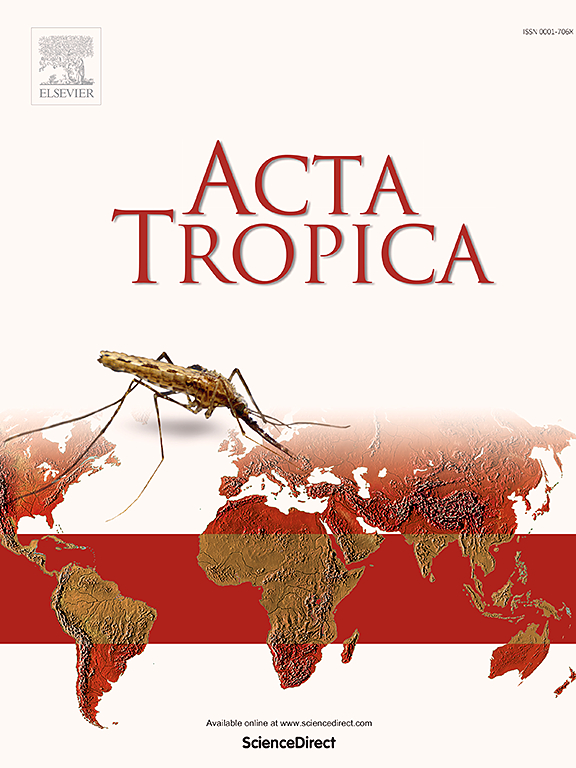Chronic toxoplasmosis induces depression-like behaviors and neuroinflammatory responses in mice
IF 2.1
3区 医学
Q2 PARASITOLOGY
引用次数: 0
Abstract
Approximately one-third of the global population is infected with Toxoplasma gondii, which can lead to chronic infection and induce a persistent inflammatory response. This inflammation is known to increase the risk of depression-like behaviors. To investigate the impact of chronic toxoplasmosis on depression, a model of chronic infection was established, and behavioral changes were evaluated using a series of tests, including the Tail Suspension Test (TST), Sucrose Preference Test (SPT), Olfactory Sensitivity Test (OST), and Tail Immersion Test (TIT). The results showed that chronically infected mice exhibited significant depression-like behaviors and impaired olfactory sensitivity, while their pain perception remained unaffected. Additionally, the levels of astrocytes and neuroinflammation in the mouse brain were further assessed. It was observed that the expression of GFAP and proinflammatory cytokines (TNF-α, IL-1β, IL-6, IDO) was upregulated. These findings suggest that chronic toxoplasmosis induces neuroinflammation and astrocyte activation, which may contribute to the manifestation of depression-like behaviors.
求助全文
约1分钟内获得全文
求助全文
来源期刊

Acta tropica
医学-寄生虫学
CiteScore
5.40
自引率
11.10%
发文量
383
审稿时长
37 days
期刊介绍:
Acta Tropica, is an international journal on infectious diseases that covers public health sciences and biomedical research with particular emphasis on topics relevant to human and animal health in the tropics and the subtropics.
 求助内容:
求助内容: 应助结果提醒方式:
应助结果提醒方式:


